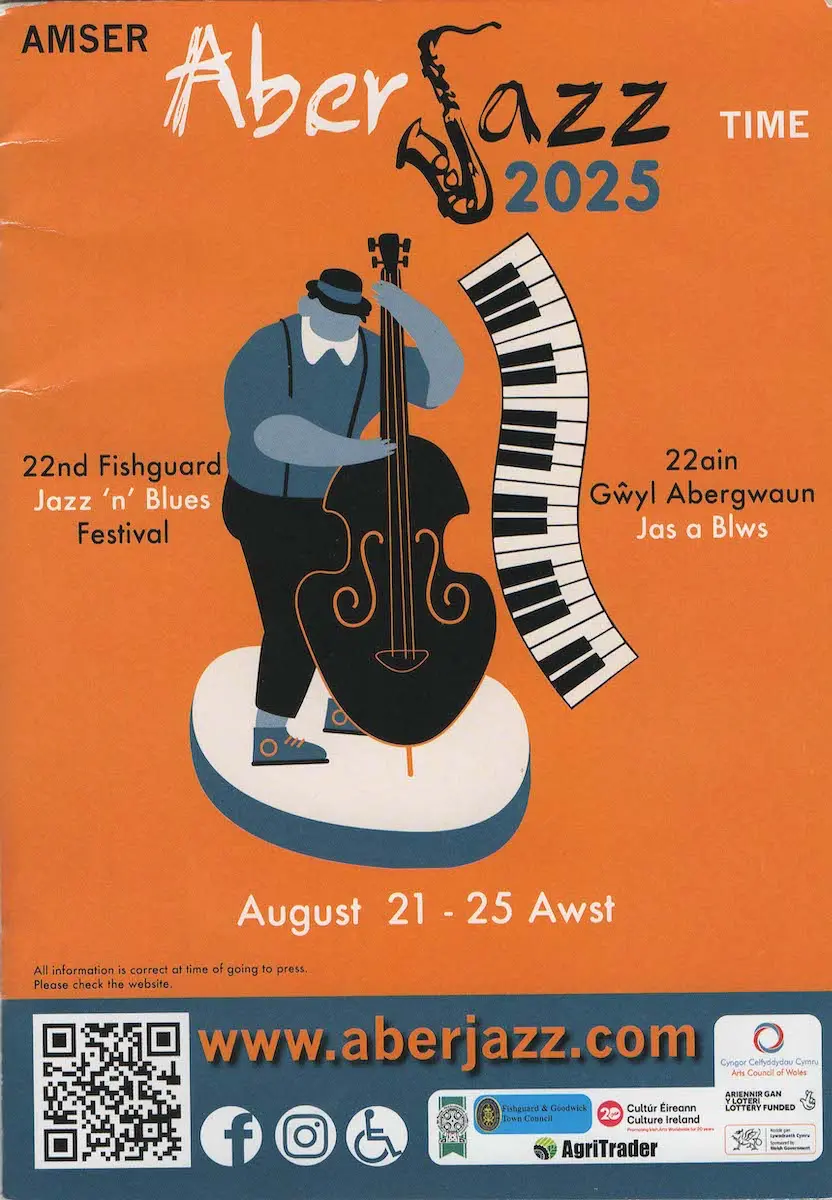
Fishguard, a quiet coastal village in Pembrokeshire, South Wales, might not be the first place that springs to mind when you think of jazz hotspots. But for five days each summer it transforms into a vibrant hub of rhythm, soul and community spirit. Under the inspired leadership of Alice and Paul Stonhold, the Aberjazz Festival has grown from a modest weekend gathering into a full-scale celebration of jazz and blues that rivals far larger events in ambition and atmosphere.
In a post-pandemic landscape where many festivals are still finding their feet, Aberjazz stands out not just for surviving, but for thriving. With 29 main performances, 15 workshops, and 25 fringe events across seven walkable venues, the festival embraces the full spectrum of jazz and blues. From traditional standards to experimental fusions, there’s something here for every ear.
The journey & the music
I was drawn to Fishguard on the recommendation of a musician friend performing there. The nearly five-hour drive from Manchester gave me pause, but once I escaped the M62/M6 tangle, the journey became part of the adventure. A pre-festival interview with Alice Stonhold, still available on my Mixcloud channel, confirmed I was heading somewhere special.
Attending with my partner, we caught 10 performances and one workshop. Though we missed the full Bains Trio tribute to Astor Piazzolla, the remaining duo, Juliette Iglesias on piano and Ianina Pietrantonio on flute, delivered a spirited and intimate set that set the tone for the days ahead.
From there, the festival unfolded like a well-curated mixtape: James Chadwick’s J4 brought the swinging sounds of the 60s; Sharon Clancy wooed with velvet vocals; Ma Bessie Smith’s Blues Troupe had the crowd dancing in the aisles – undoubtedly the week’s breakout act; Kevin Lawlor’s Cluster Funk fused hip hop with contemporary jazz in a genre-bending set; Jay Azzolina’s Quartet offered a chilled, introspective vibe; Tomas Williams Quintet delivered a stunning homage to Miles Davis; Michael Roach’s blues workshop deepened our appreciation for the art of jamming; Mr Wilson’s Second Liners led a joyful parade behind a Welsh dragon; Yetii closed our evening with Norwegian jazz tinged with British flair.
Venues & vibes
Aberjazz makes clever use of its spaces, from the cosy intimacy of Peppers to the grandeur of Ffwrn, St Mary’s Church, and a full-scale independent theatre. Twinned with Wexford, Ireland, the festival also embraced Celtic jazz influences, thanks to support from Culture Island.
But what truly sets Aberjazz apart is its community team. A small, well-drilled team of volunteers handled ticketing, seating and way-finding with warmth and precision. Their presence added a layer of hospitality that’s often missing at larger festivals. This “unpaid added value” makes Aberjazz feel less like an event and more like a shared experience.
Final thoughts
Aberjazz isn’t just a festival, it’s a community celebration wrapped in music. It’s the kind of event where you can wander from venue to venue, bump into artists between sets, and feel part of something bigger than the sum of its parts. Whether you’re a seasoned jazz aficionado or a curious newcomer, Fishguard offers a welcome that’s as warm as its melodies.
Steve Bewick is a freelance jazz broadcaster. Catch his weekly jazz show on Mixcloud and follow him on Facebook
